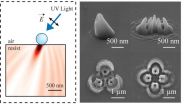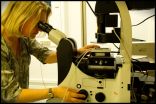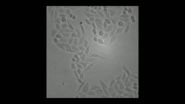Therapies designed to target the immune system and ignite the body's own disease-fighting mechanisms have become an increasingly promising field of study, particularly in blood cancers. While the immune system can easily recognize viruses and other foreign invaders with radically different properties, cancer cells can sometimes evade detection because they are so similar to the body's own cells. New immunotherapy treatment approaches aim to enable the body's natural defenses to more efficiently recognize and destroy malignant cells.
The studies presented today include promising early data that encourage long-term outcomes among patients who have not responded to other therapies and represent some of the most exciting developments in immunotherapy to date. The newest types of these therapies are part of a new class of drugs called checkpoint inhibitors that aim to awaken T cells, which mediate anti-cancer immunity, and enable them to immediately seek and destroy cancer. Two other studies detail results of new drugs that target a signaling molecule that turns off an important immune checkpoint and dampens the immune response to Hodgkin lymphoma. Others include data on two distinct approaches targeting the same antigen on the surface of cancer cells to help create an immune cell army charged with attacking the foreign invader.
"For the past decade we have strived to leverage the immune system to fight resistant disease in extremely sick patients, so it is very encouraging that immunotherapies are now proving to be effective and relatively safe," said Catherine M. Bollard, MD, MBChB, moderator of the press conference and Bone and Marrow Transplant Specialist at Children's National Health System and the George Washington University in Washington, D.C. "Now that we are seeing promising results, we need to combine these strategies with others to better determine how to balance their potent anti-tumor activity with their potential toxicity to make them safer and even more effective."
This press briefing will take place at 10 a.m. PST on Saturday, December 6, in rooms 236-238 of Moscone South, East Mezzanine.
Checkpoint Inhibitors Show Safety, Efficacy in Hodgkin Lymphoma
Nivolumab in Patients with Relapsed or Refractory Hodgkin Lymphoma - Preliminary Safety, Efficacy and Biomarker Results of a Phase I Study [289]
Classical Hodgkin lymphoma (cHL) is characterized by a genetic alteration that likely supports cancer growth by manipulating a common immune pathway called the PD1 pathway. This alteration results in increased engagement of PD-1, a receptor on the surface of immune cells, dampening the immune response to the cancerous cells. Researchers evaluating this unique interaction hypothesized that blocking the PD-1 signal from reaching the immune cells might restore their cancer-fighting power.
To help determine whether blocking PD-1 activity could be a safe and effective way to treat cHL, investigators conducted a Phase I study of the PD-1 inhibitor nivolumab in 23 patients with relapsed or resistant cHL, 87 percent of whom had failed more than three previous treatment regimens, including stem cell transplant and brentuximab vedotin. Patients received an intravenous infusion of nivolumab every two weeks until their tumors progressed or they experienced excessive toxicity. At the time of the latest analysis in June 2014, and after an average follow up of 40 weeks, 20 of 23 patients (87%) receiving nivolumab had experienced either complete response (four patients, 17%) or partial response (16 patients, 70%). The drug's toxicity mirrored that observed in other solid tumor cancers, with no life-threatening toxicity, and 22 percent of patients experiencing a serious treatment-related adverse event. Based on these results, the U.S. Food and Drug Administration has granted nivolumab breakthrough therapy designation in relapsed cHL, and a large, multi-national Phase II study is underway.
"Our data are encouraging for Hodgkin lymphoma patients with relapsed or treatment-resistant disease, and the remarkable response rate seen in this study validates the scientific hypothesis that Hodgkin lymphoma relies heavily on the PD-1 pathway for survival," said lead study author Philippe Armand, MD, PhD, of Dana-Farber Cancer Institute in Boston. "We hope that further development of this drug can lead to improved outcomes for patients afflicted with this cancer."
Dr. Armand will present this study at 7 a.m. PST on Monday, December 8, in rooms 3009-3011-3022-3024 of Moscone West.
PD-1 Blockade with the Monoclonal Antibody Pembrolizumab (MK-3475 in Patients with Classical Hodgkin Lymphoma after Brentuximab Vedotin Failure: Preliminary Results from a Phase 1b Study (KEYNOTE-013) [290]
Pembrolizumab is a PD-1 inhibitor in the family of checkpoint inhibitor drugs already approved for melanoma and now under development to support the immune system in fighting classical Hodgkin lymphoma (cHL).
This Phase 1 study evaluated the PD-1 inhibitor pembrolizumab in 29 heavily pre-treated patients with cHL. All patients in this study failed previous treatment with brentuximab vedotin, and 69 percent of patients enrolled had relapsed after a stem cell transplant. Patients received pembrolizumab intravenously every two weeks until disease progression, excessive toxicity, or completion of two years of therapy. At the time of analysis in November 2014, 66 percent of the patients responded to the drug, with six patients (21%) achieving a complete remission and 13 patients (45%) achieving a partial remission. Pembrolizumab appeared to be well-tolerated, as there were no serious treatment-related adverse events, and only three patients experienced moderate treatment-related adverse events.
"These results are particularly compelling since they are demonstrating complete responses to a drug in a patient population who had failed all other therapies; this was their last chance," said lead study author Craig Moskowitz, MD, of Memorial Sloan Kettering Cancer Center in New York. "It will be important to further evaluate this drug in combination with others, or perhaps even as a maintenance treatment, to enhance the post-transplant immune response."
Dr. Moskowitz will present this study at 7 a.m. PST on Monday, December 8, in rooms 3009-3011-3022-3024 of Moscone West.
New Immunotherapy Compound Effective, Safe in Leukemia Patients with Minimal Residual Disease
BLAST: A Confirmatory, Single-Arm, Phase 2 Study of Blinatumomab, a Bispecific T-Cell Engager (BiTE) Antibody Construct, in Patients with Minimal Residual Disease B-Precursor Acute Lymphoblastic Leukemia (ALL) [379]
Patients with acute lymphocytic leukemia (ALL) who are in remission may have trace amounts of residual disease in their bone marrow, which is known to increase the risk of suffering a relapse. This study pairs new and evolving methods to detect minimal residual disease (MRD) with a new antibody that recruits T cells to attack lingering disease cells. Blinatumomab, an investigational drug known as a bispecific T cell Engager (BiTE©) antibody construct, is designed to bind to a protein on the surface of ALL cells (CD19) as well as to a protein on the surface of T cells (CD3), uniting the cells and charging the T cell to attack the cancer cell. As the T cells continue to attack, they detach from cells they have destroyed and proliferate, attaching to new prey.
To evaluate the efficacy and safety of blinatumomab in patients with detectable minimal residual disease, investigators enrolled 116 adults with ALL in a Phase II trial. Patients received continuous infusion of the treatment for four weeks followed by a two-week, treatment-free period; responders could receive up to four cycles of treatment or undergo stem cell transplant after one cycle. Of 113 patients enrolled in the trial and evaluable for assessment of minimal residual disease, 88 (78%) experienced a complete MRD response (no minimal residual disease detected). Nearly all complete responses (98%) occurred within the first treatment cycle. Most treatment-related toxicity (e.g., headache, fever, and fatigue) was related to cytokine release, which develops as a result of successful T cell activation and expansion. Other patients experienced neurologic events; however, none of these events were fatal. One patient died from atypical pneumonia that was considered to be related to treatment.
"This is one of the first studies to evaluate a new compound in patients when they have trace amounts of residual disease, rather than when they are experiencing a full relapse," said lead study author Nicola Gökbuget, MD, of Goethe University in Frankfurt, Germany. "Our results with blinatumomab demonstrate the significant clinical activity of this compound in ALL. Further follow up will be necessary to demonstrate that starting similar treatments when patients have a lower disease level may provide more long-term benefit."
Dr. Gökbuget will present this study at 10:30 a.m. PST on Monday, December 8, in rooms 3009-3011-3022-3024 of Moscone West.
T Cell Therapy Leading to Prolonged Remission for Children with Aggressive Leukemia
T Cells Engineered with a Chimeric Antigen Receptor (CAR) Targeting CD19 (CTL019) Have Long Term Persistence and Induce Durable Remissions in Children with Relapsed, Refractory ALL [380]
Studies detailing patient outcomes with chimeric antigen receptor (CAR) T cell engineering are beginning to provide evidence that supports this therapy as a viable strategy for long-term disease control. The CAR process requires extracting T cells from the blood of a patient and outfitting them with two powerful features: a receptor on the cell surface that recognizes the CD19 protein present on most leukemic cells, and a powerful mechanism inside the cell that triggers it to expand and proliferate once attached to the targeted protein. With these engineered features, the T cells are injected back into the patient to hunt and then destroy cancer cells.
This study report details long-term, follow up data from a trial using CAR T cell therapy in 39 children and young adults (median age 10 years) with relapsed, treatment-resistant acute lymphocytic leukemia (ALL). After the experimental treatment, 36 of 39 children (92%) achieved a complete response. Six months after treatment, more than two-thirds (70%) of children enrolled in the study remained cancer free, and 75 percent have survived. Only five children have received subsequent treatment.
"With this longer follow up, we now have children who remain in remission a year or more after treatment solely because of this T cell therapy," said lead study author Stephan Grupp, MD, PhD, of The Children's Hospital of Philadelphia. "Our next step is to conduct a Phase II, multi-site trial to assess the safety and efficacy of this treatment in multiple centers and to further evaluate its long-term potential to become a replacement for stem cell transplant for children with relapsed, treatment-resistant disease."
Dr. Grupp will present this study at 10:30 a.m. PST on Monday, December 8, in rooms 3009-3011-3022-3024 of Moscone West.
INFORMATION:
INFORMATION:
American Society of Hematology 56th Annual Meeting The study authors and press program moderator will be available for interviews after the press conference or by telephone. Additional press briefings will take place throughout the meeting on advances in lymphoma and myeloma treatment, anemia and novel care approaches, leukemia research, and blood clots. For the complete annual meeting program and abstracts, visit http://www.hematology.org/annual-meeting. Follow @ASH_hematology and #ASH14 on Twitter and like ASH on Facebook for the most up-to-date information about the 2014 ASH Annual Meeting.The American Society of Hematology (ASH) is the world's largest professional society of hematologists dedicated to furthering the understanding, diagnosis, treatment, and prevention of disorders affecting the blood. For more than 50 years, the Society has led the development of hematology as a discipline by promoting research, patient care, education, training, and advocacyin hematology. The official journal of ASH is Blood, the most cited peer-reviewed publication in the field, which is available weekly in print and online.




